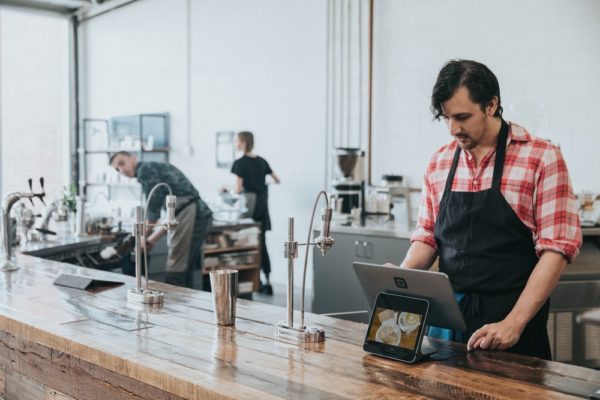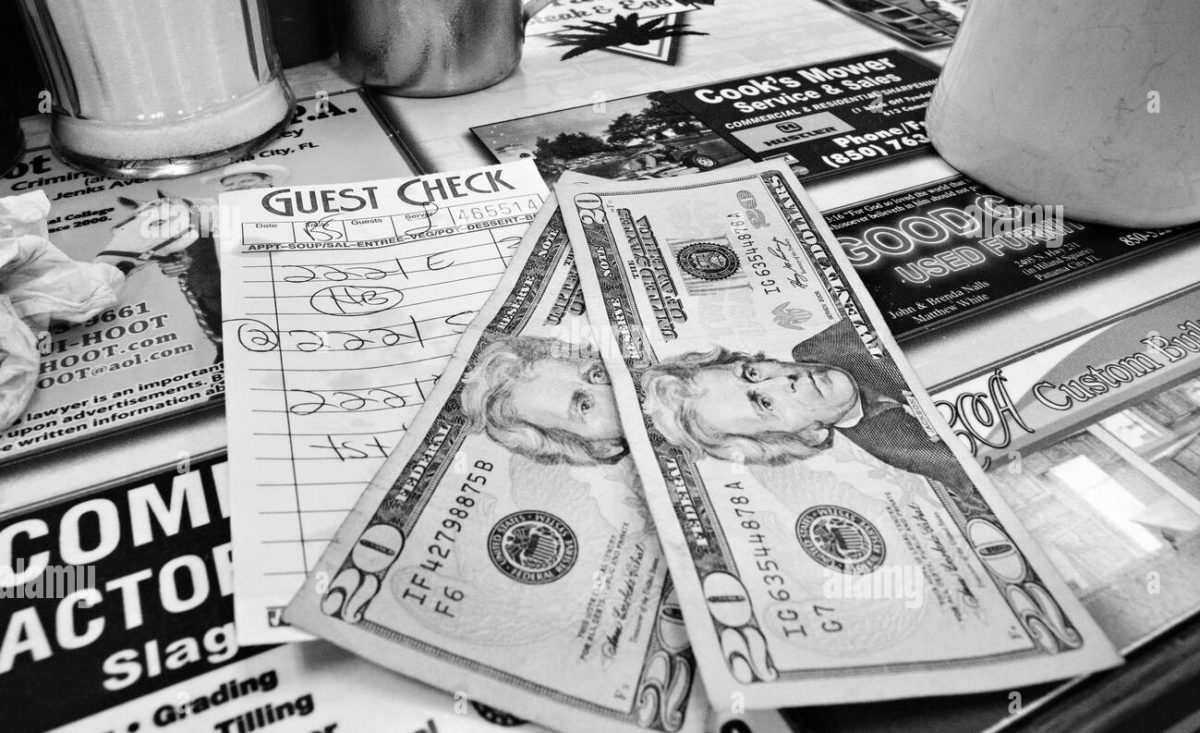A great restaurant experience helps filter out the anxieties of the outside world. It’s hard to imagine needing that more than we all do right now. The calming effect of a stiff, dry martini (or several) after a long work day combined with some mindless gab with a chatty bartender can often feel like better medicine than a trip to the physician’s office. Delicious food is restorative, and great hospitality can uplift our spirits in innumerable ways. Many of us have been deprived of those holistic comforts over the past two years, and while absence may have made the heart grow fonder it hasn’t necessarily made us all more compassionate guests.
Right now, the existential problems restaurants face are dire. The sacrifice required to provide hospitality to hungry guests is at an all-time high. Inflation is skyrocketing out of control, the labor pool is shrinking, and wages are rising faster than menu prices can. Meanwhile, government support has been inconsistent and ham-handed. Thousands of independent restaurants have closed permanently and every new Covid-19 variant threatens to further derail the path to recovery.
Despite the massive headwinds, it doesn’t feel like the dining public has recalibrated its expectations accordingly. The same old jingoistic ideology around hospitality—that customers are always right, for example—is unsustainable given the catastrophic effects of the pandemic. Yet, you wouldn’t sense anything is different by reading Yelp reviews complaining about slow service or feature articles by writers without restaurant backgrounds preaching about all the mistaken lessons restaurants have learned form the pandemic.
Tom Sietsema, the chief restaurant critic for The Washington Post, recently wrote about the disturbing trend of bad service experiences he’s had in restaurants lately. “Two years into the pandemic,” he writes, “some diners’ patience has grown thin as angel-hair. The elephant in the room? Service, or the lack thereof.” It’s understandable that service standards have suffered as of late, and there’s might very well be merit to Sietsema’s grievances, but his statement belies a deeper issue about how obsolete our ideas have become surrounding the entitlements of a paying customer. If, as guests, we can’t show restaurants mercy while they struggle to survive a once-in-a-lifetime public health crisis, when will we ever?
Administering hospitality always requires some degree of sacrifice. But the pandemic has pushed the industry’s inherent selflessness to its limits, in many cases involving an incalculable human cost. Studies have shown that line cooks have been at greater risk than any other profession during the pandemic, a fact that seems underreported as society tries to return to normal. Kitchen staff are often disproportionally comprised of people of color and immigrants who don’t have the luxury of staying home from work. Our privilege when we dine out or order delivery may have helped sustain local businesses, but it’s also put lives at risk, disproportionally affecting communities of color, the poor, and working class.

The restaurant workforce is still stretched thin, working longer hours with only nominal pay increases, if any. Front of house staff have been tasked with policing masking and vaccination requirements, all while revenues decline and the personal incomes of tipped employees suffer in lockstep. In some cases, workers have had to endure verbal and physical assaults from belligerent guests simply for enforcing policies that are government-mandated. Restaurant workers don’t have the luxury of making political statements at their jobs, and yet they continue to be vulnerable to misguided attacks from entitled patrons with Covid fatigue.
Meanwhile, very little has changed in terms of what we expect of diners. People continue to no-show for their reservations without warning, post disproving online reviews on apps like Yelp, bitch about QR Code menus, and antagonize staff over masking policies. Media publishes missives on how the restaurant industry can do better, like a recent article in The Atlantic which makes the case that restaurants have learned nothing during the pandemic. This all begs the question: What have diners learned?
This is an opportune time to recalibrate how we think about the role restaurants play in our society. The pandemic should have taught us harsh lessons about how essential restaurants are to the social fabric of our communities. Many restaurants have stood as pillars of their cities’ histories in ways that transcend their cuisine—iconic destinations like Dooky Chase in New Orleans, Versailles in Miami, or The Union Oyster House in Boston whose legacies are intertwined with American politics and social change.
The survival of such institutions stands as a symbol of the accrued sacrifices of multiple generations of families that have provided sanctuary for their neighbors. These spaces function more like churches, schools, and libraries, but we rarely treat restaurants with the same reverence. And we certainly do not approach our restaurant visits with the same humility or charitable spirit. The exchange of money tilts the balance of power to customers and breeds entitlement. Capitalism reduces our relationship with restaurants to something purely transactional when it should be symbiotic. We are only as good as the restaurants that surround us and, right now, we’re turning into an overstuffed Chipotle burrito.

In the last twenty years, the foodie zeitgeist has conditioned us to look to restaurants for inspiration over comfort. There’s nothing inherently terrible about wanting to be inspired by a singular dining experience, except when it leads patrons to feel shortchanged when they haven’t experienced the requisite awe. To deride restaurants for missteps during a global pandemic however—as Sietsema has in his recent column—obfuscates the sacrifices that so many restaurants and their staff have endured to provide people the simple comfort of dining outside of our homes. Approaching our dining experiences with greater empathy will make it impossible to ever feel shortchanged.
While working in an upscale steakhouse, I once had a table order a $300 wagyu ribeye for four that was so big that it took over an hour to cook. When the food runner finally arrived, he dropped the tray of food, ruining the luxurious entrecôte. The manger approached the table in a panic. Re-firing the steak, he told them, would take another hour, so he offered other solutions (for which the restaurant would foot the bill of course). The group took the news graciously. They expressed concern for the food runner who dropped the tray, worried he might lose his job (he didn’t).
There was nothing particularly heroic about their behavior, but it was refreshing to find customers spending a lot of money on a meal who weren’t emboldened by the power of their purse. They simply asked for a replacement steak and enjoyed each other’s company for another hour. It wasn’t the most picturesque dinner ever served, but accidents happen and both parties worked together to make the best of it.
I can tell you from twenty years working in restaurants that customers are often far less forgiving of much more trivial mistakes. When conflict arises, restaurant workers take the high road because the low road is a gated, private path reserved for guests. Without diners making more sacrifices and meeting restaurants halfway, however, we risk losing so many more of these cherished restaurants that contribute immeasurably to the character of our communities. These restaurants need better guests right now more than guests need better restaurants. If you love dining out, my advice is: Ask not what restaurants can do for you, but what you can do for restaurants.

